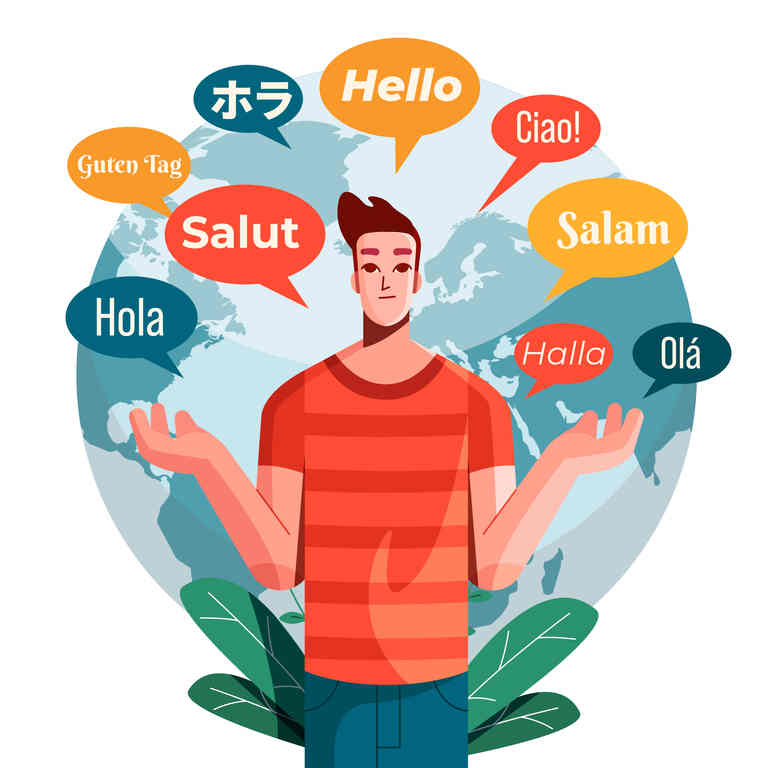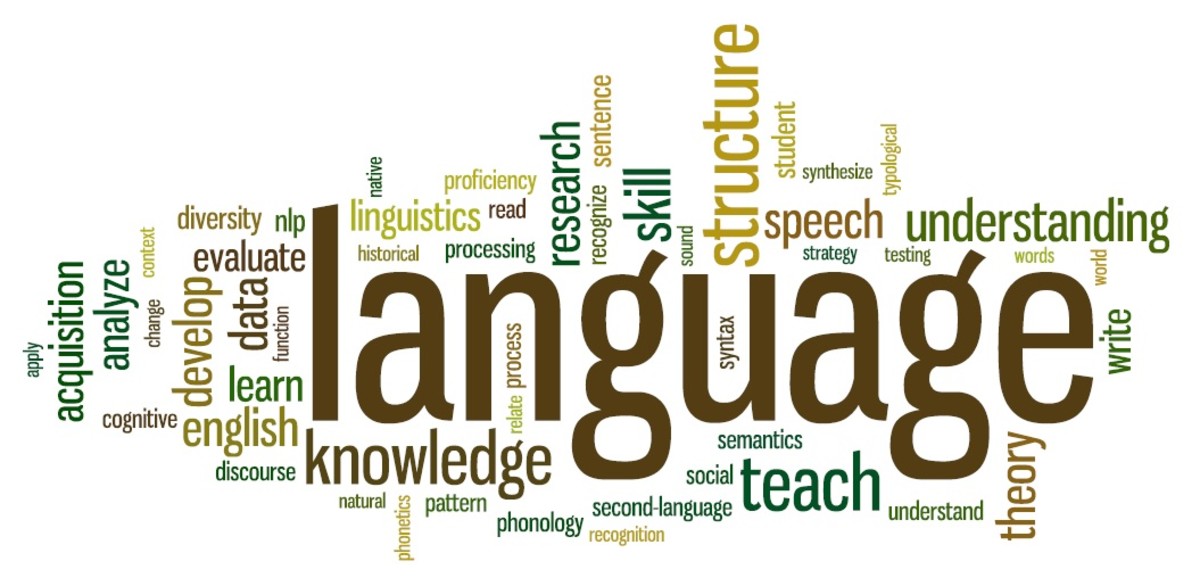Discovering What Language Do They Speak In Nigeria: A Look At Its Rich Linguistic Mix Today
Have you ever wondered about the vibrant sounds and diverse conversations that fill the air in Nigeria? It’s a country that, you know, really buzzes with life, and a big part of that energy comes from its incredible variety of languages. People often ask, "what language do they speak in Nigeria?" and the simple answer is, well, it's not quite so simple, as a matter of fact. There's a fascinating story behind the words spoken every single day across this amazing nation.
- Jameliz Benitez Smith Dana White Xxx
- How Did Coach Wall Die
- La Vie Est Belle
- Fast And Furious Suki
- What Does Oc Mean
For someone curious about how folks communicate there, it’s pretty interesting to learn that Nigeria actually holds a truly special place on the global language map. It’s a place where, you could say, many different tongues come together, creating a rich tapestry of human expression. This linguistic richness, it’s almost like a reflection of the country's diverse cultures and long history, too.
So, if you’re looking to get a clearer picture of the everyday talk, the official pronouncements, and the ancient languages that echo through generations in Nigeria, then you’re definitely in the right spot. We’re going to explore the main languages, the official language, and even a bit about how these different ways of speaking came to be so important, you know, for the people who call Nigeria home.
- Sid The Sloth Ice Age
- What Is The 4th Hole Slang
- We Were Liars Cast
- Filmyfly 4
- Fruit Of The Loom Cornucopia
Table of Contents
- The Official Voice: English in Nigeria
- Hausa: A Major Language with Wide Reach
- The Edo Language and Its People
- Nigeria's Stunning Linguistic Diversity
- How English Came to Be Spoken There
- The Gift of Multilingualism
- Frequently Asked Questions About Languages in Nigeria
The Official Voice: English in Nigeria
When you think about the formal side of things, like government, education, or even national news, it’s English that takes center stage in Nigeria. It's actually the official language of the country, which, in a way, makes it a truly important tool for communication across all the different groups of people who live there. This means, you know, that official documents and many public conversations typically happen in English.
This use of English as the official language is quite a significant point, as it serves as a common ground for folks from various linguistic backgrounds. So, even though there are hundreds of other languages spoken, English acts like a bridge, allowing people from different regions to connect and understand each other, which is pretty useful, really.
Many individuals, especially those who are Hausa, also speak English, you know, because it is the official language of Nigeria. This means that for a good portion of the population, having a grasp of English is not just a nice-to-have, but often a practical necessity for daily life, work, and education, as a matter of fact.
Hausa: A Major Language with Wide Reach
Beyond the official language, there are several truly prominent indigenous languages, and Hausa is definitely one of them. It's primarily spoken in Nigeria, where it’s thought of as one of the main languages, shaping conversations and cultural expressions for a very large number of people. Its presence, you know, is really felt in many parts of the country.
Interestingly, Hausa isn't just confined to Nigeria, either. It’s also widely spoken in other countries nearby, such as Niger, and even in places like Ghana and Cameroon. So, its reach, you could say, is quite extensive, extending across borders and connecting communities in a truly significant way, which is pretty cool.
For people who are part of the Hausa community, their main language, unsurprisingly, is Hausa. That’s just how they communicate, you know, in their homes and within their own circles. However, as we mentioned, many Hausa people also speak English, given its status as the official language of Nigeria, where a good number of Hausa folks live, so it’s a practical skill, basically.
The Edo Language and Its People
Moving to another important linguistic group, the Edo tribe, they primarily speak the Edo language. This language, you know, is also known by another name: Bini. It's a very distinct and culturally rich language, deeply connected to the identity and heritage of the Edo people, so it's a truly vital part of their community.
Understanding that different tribes have their own specific languages is, in a way, a key part of appreciating Nigeria's overall linguistic landscape. The Edo language, for example, represents just one of the many unique voices that contribute to the country’s incredibly diverse soundscape. It’s a powerful reminder that Nigeria is a collection of many different cultures, each with its own way of speaking, you know.
So, while English serves as the official bridge, and Hausa is a major regional player, languages like Edo (Bini) are truly important for the specific communities that use them. They carry history, stories, and a particular way of seeing the world, which, in some respects, is irreplaceable for their people.
Nigeria's Stunning Linguistic Diversity
It's honestly quite remarkable to think about, but Nigeria is home to an incredible number of languages. We're talking about, you know, over 500 other languages that are also used across the country. This makes Nigeria one of the most linguistically diverse places on Earth, which is a rather impressive fact when you consider it.
This sheer number of languages means that, for many people, hearing different tongues spoken is just a part of everyday life. You might hear one language in a market, another in a family home, and then English in a more formal setting, too. It’s a constant interplay of sounds and meanings, creating a truly unique environment, as a matter of fact.
The existence of so many distinct languages highlights the rich cultural heritage of Nigeria's many ethnic groups. Each language, in a way, represents a unique community with its own traditions, stories, and ways of life. It’s a powerful reminder of how truly varied and vibrant the country is, you know, in terms of its people and their expressions.
How English Came to Be Spoken There
The story of how English became so prominent in Nigeria, you know, actually goes back quite a ways in time. English began to be spoken in Nigeria as far back as the early 1800s. This was largely due to a rather significant British naval presence that had been sent there. Their main aim, you see, was to try and halt the slave trade, which was a truly terrible practice at the time.
So, this historical connection, rooted in those early interactions, laid the groundwork for English to become a part of the linguistic landscape. Over time, as the British influence grew, English, in a way, became more ingrained in the region's communication. It’s a clear example of how historical events can truly shape the languages a country uses, even today, you know.
The reason why English is used in Nigeria today, then, is because English is the official language of the country. This status, as a matter of fact, traces its roots back to those earlier periods of contact and colonial history. It's a legacy that continues to impact daily life and communication for millions of Nigerians, even though there are over 500 other languages also used, obviously.
The Gift of Multilingualism
One of the most remarkable things about language in Nigeria is that many people are, you know, quite skilled at speaking more than one language. Besides their people's tribal language, which is also truly important for their cultural identity, they also have to speak English in Nigeria. So, most Nigerians, on average, know two or more languages by the time they are adults, which is pretty amazing, really.
This ability to switch between languages, you know, often effortlessly, is a truly valuable skill. It allows individuals to connect with their heritage through their local tongue while also participating in broader national and international conversations using English. It’s a sign of a truly adaptable and connected population, as a matter of fact.
So, you know, this multilingualism isn't just about knowing words; it’s about understanding different ways of life and connecting with a wider world. It’s a testament to the country's rich cultural fabric and the practical needs of daily living in a place with so much linguistic variety. To learn more about language diversity on our site, you can explore other related articles, and also link to this page for more insights into global language patterns.
Frequently Asked Questions About Languages in Nigeria
Is English the only language spoken in Nigeria?
No, not at all, as a matter of fact. While English is the official language of Nigeria, and very important for formal communication, there are over 500 other languages also used across the country. So, you know, it’s a truly diverse place when it comes to how people talk.
What are some of the main indigenous languages in Nigeria?
One of the really big ones, you know, a very prominent voice in Nigeria, is Hausa, which is considered a main language. The Edo tribe also primarily speaks the Edo language, which is also known as Bini. These are just two examples among many other truly important local languages, too.
Do most Nigerians speak more than one language?
Yes, that’s actually quite common. Besides their people's tribal language, which is truly important for their cultural identity, most Nigerians also have to speak English. So, most Nigerians, on average, know two or more languages by the time they are adults, which is pretty impressive, really.
If you're curious to learn more about the fascinating world of languages, you might find some interesting information over at Ethnologue's page on Nigeria. It's a great resource for getting a deeper look into language data.
- Salvage Hunters Tee
- Despacito Lyrics English Song
- Stanley Hudson From The Office
- La Vie Est Belle
- Visual Kei Dress To Impress

7+ Ways to Overcome Barriers to Communication with Examples

Let’s learn about the science of language

What Is Language? The 5 Basic Elements of Language Defined - Owlcation